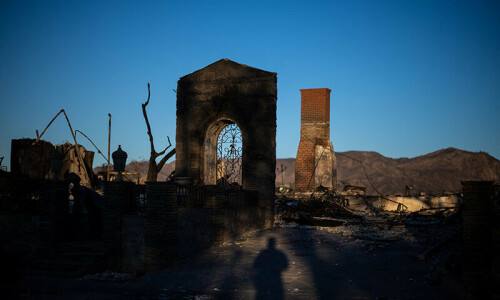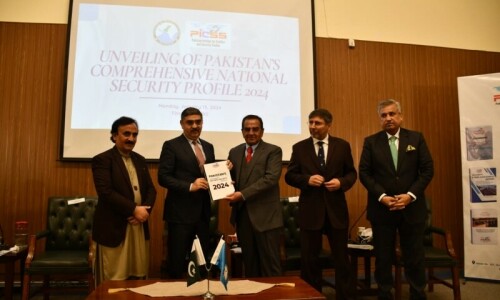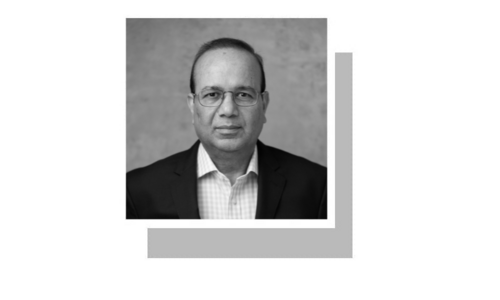Madressah reform

IN exonerating the majority of madressahs across the country from any involvement with extremism or militancy, Interior Minister Nisar Ali Khan may have meant to send a reassuring message to both the custodians of these seminaries and the public at large.
Simple maths though suggests that the interior minister instead flagged an alarming problem: if, as he suggested, 90pc of the madressahs in the country are problem-free, then that still leaves thousands upon thousands of seminaries in the country that do have an extremism and militancy problem.
The question then should be what the state is doing about the militancy- and extremism-sponsoring madressahs, although it is a rather pointless query given that the interior minister himself would rather gloss over the fact that there are thousands of madressahs with a militancy and extremism problem.
Also read: Lal Masjid protest activist receives threatening phone call
For too long, the religious right and madressah administrators across the country have resisted state oversight and even registration in the name of religious freedom, the argument ostensibly being that the state is really either trying to slow the growth of madressahs or progressively shut them down in the name of oversight. But that is simply untrue.
A conservative population combined with a scarcity of education means that madressahs will continue to exist and even flourish, just like the private sector offering more mainstream education does.
Surely though, providing a religion-based education does not — or should not — mean creating an enabling environment where either radicalisation of young minds directly takes place or militant groups seek out vulnerable individuals to recruit for terrorist purposes.
Moreover, why should so many madressahs be able to teach a curriculum that simply does not prepare its student for any aspect of the modern world, leaving them without a set of skills that can help them find any semblance of a job outside the mosque-madressah-social welfare network that many militant groups have assembled?
Reforms are essential, but so is extra vigilance and policing in the short term. While only a systematic and exhaustive survey will create a map of madressahs that identifies all the trouble spots, the big problem centres are well known.
Whether it is hate speech, off-site recruiting facilitated by madressah administrations or straightforward ties to banned outfits that some high-profile madressahs have, the intelligence and law-enforcement apparatus of the country already has a reasonably developed picture.
Now is the time to clamp down on madressahs that are sponsoring hate or promoting terrorism. But that will only be possible if decisiveness is shown by the state.
If those such as Lal Masjid’s Abdul Aziz can spew hate and threaten suicide attacks in the heart of the federal capital, then what of the far-flung areas where the state’s writ is weak and local law enforcement very much subordinate to powerful madressahs with all manner of state and non-state connections? Now is the time to stand firm.
Published in Dawn December 23th , 2014











































